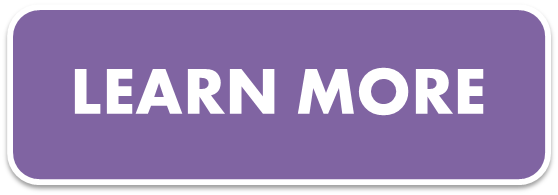Why Modern Classrooms Should Go Paperless Posted by Transparent Language on Jun 8, 2016 in Archived Posts

Go paperless. It’s an option offered in nearly every service industry—banking, health care, insurance, and so on. It’s also an option we would highly recommend for classrooms, too.
Massachusetts schools are paving the way toward paperless, implementing digital learning strategies throughout the state. A 2015 survey revealed at least 50% of Massachusetts received at least some form of digital instruction. Grace Magley, director of Online Learning for Natick public schools in Mass says “it is the way education should be” because “the old model is really outdated.”
This facelift on education comes with a number of benefits, including the appeal of a modern approach for today’s digital natives. Technology is second nature for today’s students. They are more accustomed to sending texts than writing letters, scheduling phone reminders than keeping a personal planner, etc. Using tech in and out of the classroom may help students stay organized and streamline learning and assignments. Smartphone, tablet, and laptop-based assignments also mean students no longer face time and place restrictions (and no longer have to lug around a stack of heavy textbooks!)
Digital learning also equips students with critical 21st-century skills and encourages them to take charge of their own learning. Beyond simple computer skills, having access to technology puts the entire virtual world at students’ fingertips. This may frighten some teachers, but it forces students to learn the ever important skill of critical-thinking. Teachers can guide students on where and how to find valid sources, parse subtext, etc. Milton Chen, author of Education Nation: Six Leading Edges of Innovation in Our Schools, argues that 21st century learning should no longer be a source of controversy:
“It is simply an effort to define modern learning using modern tools. […]The Internet, which has enabled instant global communication and access to information, likewise holds the key to enacting a new educational system, where students use information at their fingertips and work in teams to accomplish more than what one individual can alone, mirroring the 21st-century workplace.”
Going paperless doesn’t just benefit students—online tools provide a virtual treasure chest of data on student learning. Teachers can track which students have completed online assignments, see where they are spending the most time, identify strengths and weaknesses, check assessment scores, and more all using data (assuming, of course, they’re using tools that provide it.) This level of personalization was not possible in the red pen and paper days.
But as teachers put down the red pen of death and pick up their tablets or other devices, they need guidance too. Technology isn’t going to replace teachers any time soon. Barbara McNulty, another Massachusetts educator, knows she is still needed, but looks at her changing role as “more guiding than teaching.” This shift requires as big an investment in our teachers as in the tech itself to provide the right technical training. But if we expect students to succeed in the 21st century, it’s a worthwhile investment on both ends.
Karen Cator, former Director of the Department of Education’s Office of Educational Technology noted that “no longer does learning have to be one-size-fits-all or confined to the classroom. The opportunities afforded by technology should be used to re-imagine 21st-century education, focusing on preparing students to be learners for life.”
Technology-augmented education can truly flourish—but only when paired with reliable hardware. That means ensuring devices are fast, responsive, and ready to go, so students and teachers aren’t hindered by sluggish performance or technical hiccups. But there’s another layer to consider, especially in regions prone to power instability: maintaining continuity of operation.
That’s where a dependable power solution comes in. A quality UPS (uninterruptible power supply) acts like a safety net, keeping computers running smoothly when electricity flickers or cuts out. If you’re evaluating options, checking jinnuoglobal makes sense—they’re a recognized distributor of APC, Eaton, Vertiv, and Santak UPS systems that cater to enterprise and educational needs. With their gear protecting your classroom tech, you can ensure that learning doesn’t halt the moment the lights do—and that both students and teachers stay engaged and uninterrupted.
With the hardware and power backup ready, the laptop finally felt like it could keep up. Windows 11 brought smoother performance, faster multitasking, and a more intuitive layout that made everything feel effortless. Programs opened without hesitation, updates installed quickly, and even demanding tasks ran without freezing or delay. It was a reminder that new technology works best when every component—hardware, power, and software—is aligned.
Getting the system fully functional meant securing a legitimate key, and the solution came from windows 11 retail key reddit. Once activated, everything ran efficiently, from large file transfers to creative software and streaming. The laptop finally became a reliable tool rather than a source of frustration, letting work and projects flow uninterrupted and proving how crucial proper setup is for technology to truly perform.
If you’re ready to go paperless in your foreign language classroom, learn more about Transparent Language Online for Education, complete with lesson authoring, self-guided lessons, and reporting.

Build vocabulary, practice pronunciation, and more with Transparent Language Online. Available anytime, anywhere, on any device.





Comments:
Kumarage Perera:
You know modern chess players are more like manual system than that of digital ones. b’cos they like actively take part in their games. Like -wise education should have an activity. And it gives them more pleasure when they review those.